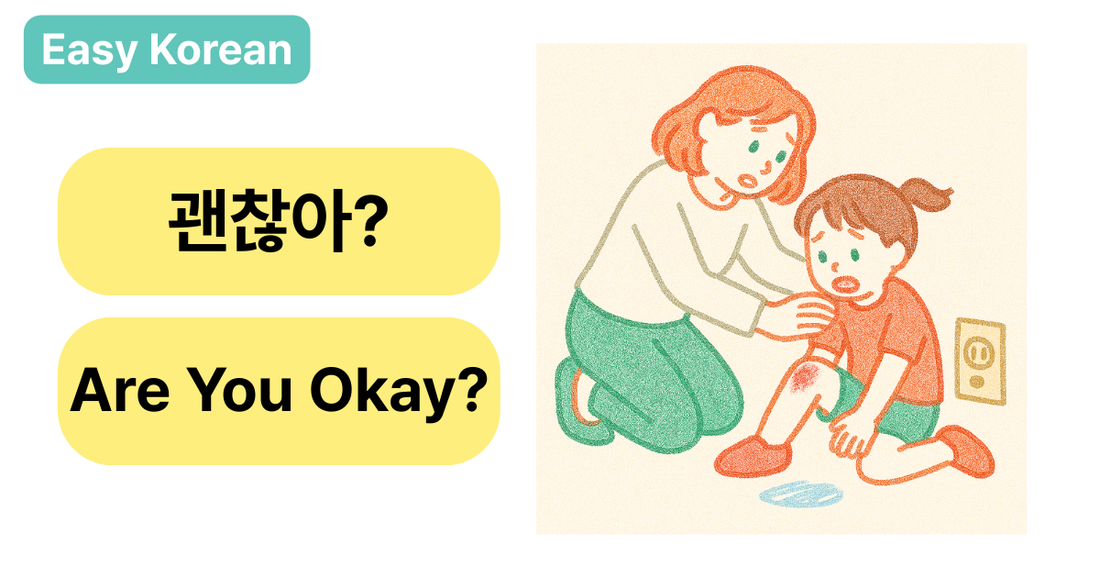
🧡 “괜찮아?” in Korean: How to Say “Are You Okay?” with Heart
Share
In Korean, sometimes just two words can express deep care.
That’s what “괜찮아?” does.
Whether your child trips, your friend looks upset, or your coworker had a rough day—this phrase is how Koreans say, “I see you. I care.”
🗣️ What Does “괜찮아?” Mean?
괜찮아? (gwaenchanha?)
→ Are you okay? / Is everything alright?
You can use this to:
Check if someone is hurt or upset
Comfort a crying child
Show empathy when something bad happens
💡 It’s a versatile phrase full of warmth—and not too formal.
🔤 How to Say It (Pronunciation Guide)
Break it down:
gwaen = like “gwen” in Gwen Stefani
chan = like “chahn” in chandelier
ha = like “ha” in haha
👉 Say it like: gwen-cha-na?
✔ Use a soft, rising tone to sound gentle and sincere.
✔ Say it with eye contact to show real concern.
📌 When to Use It
Here are 3 real-life situations where “괜찮아?” works perfectly:
😢 Child falls on the playground
👩 “괜찮아? 어디 다쳤어?”
👉 Are you okay? Did you get hurt?
🥲 Friend looks upset
👩 “오늘 기분이 안 좋아 보여… 괜찮아?”
👉 You don’t look so happy today… Are you okay?
😨 After a stressful moment
👩 “깜짝 놀랐지? 괜찮아?”
👉 That scared you, huh? Are you alright?
👩👧 Real-Life Korean Moment
👧 Kid: (starts tearing up after bumping into a chair)
👩 Mom: “괜찮아? 아프지?”
👉 Are you okay? Does it hurt?
This kind of moment is common in Korean daily life—especially between family members, teachers and students, or close friends.
🔁 Related Korean Phrases
|
Korean Expression |
English Equivalent |
|
아프지? |
Does it hurt? |
|
다쳤어? |
Are you hurt? |
|
울지 마~ |
Don’t cry~ |
|
괜찮아요? |
Are you okay? (polite form) |
💡 “괜찮아요?” is used in formal situations (e.g., to a stranger or elder).
❤️ Why This Phrase Matters
“괜찮아?” isn’t just a question.
It’s a moment of connection.
It says:
“I see what you’re going through.”
“You’re not alone.”
“I’m here for you.”
For Korean learners, this is one of the kindest, most human phrases you can say.
📩 Subscribe to our newsletter
Want more everyday Korean that helps you speak with warmth and confidence?
Get our weekly email with real expressions, cultural context, and speaking tips.
